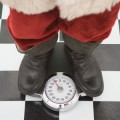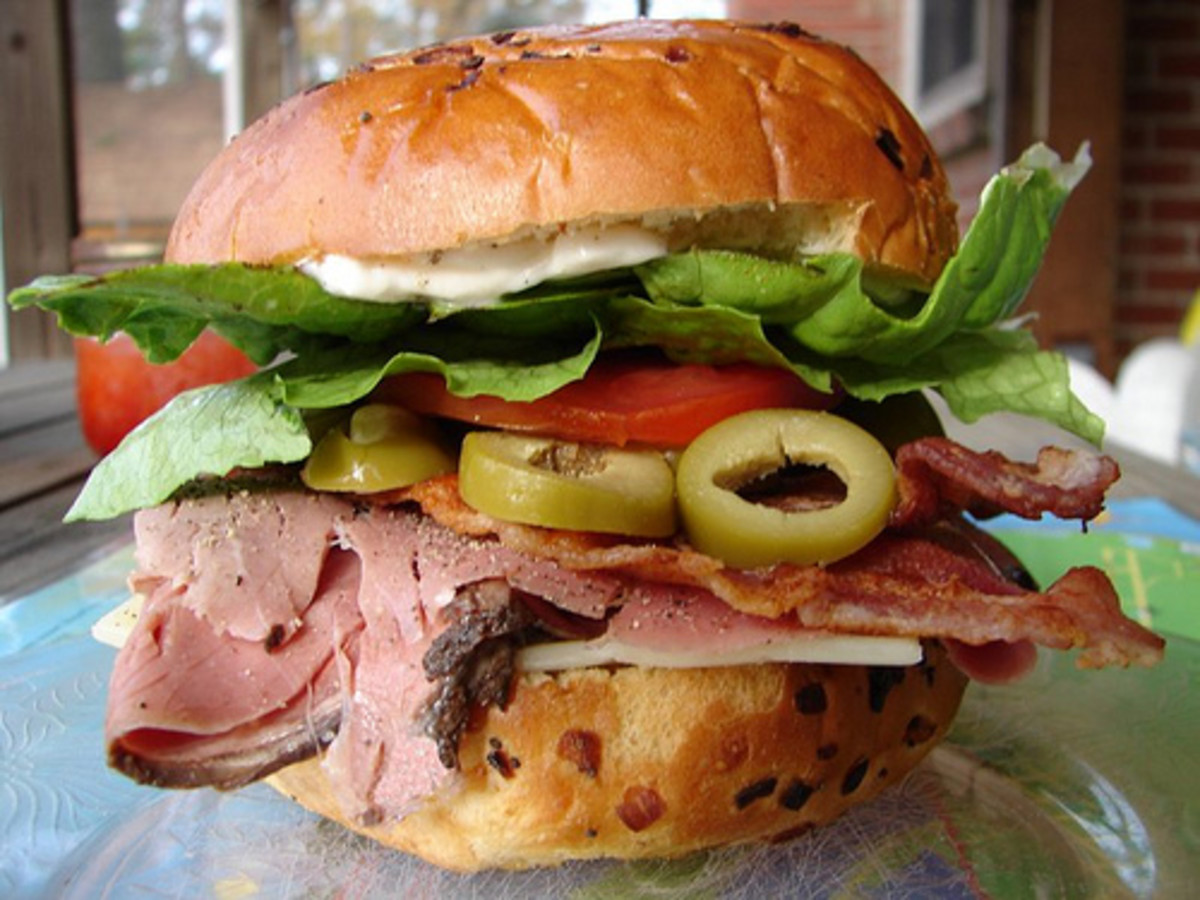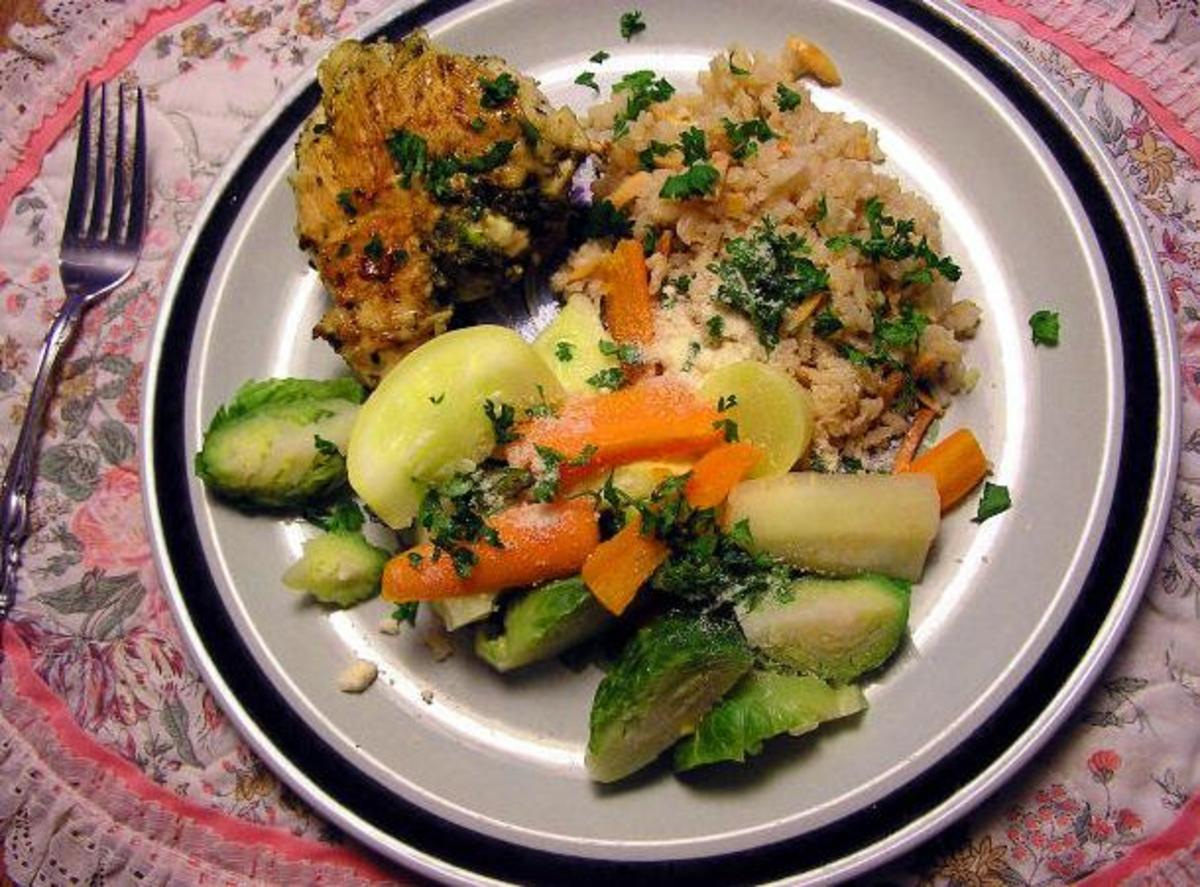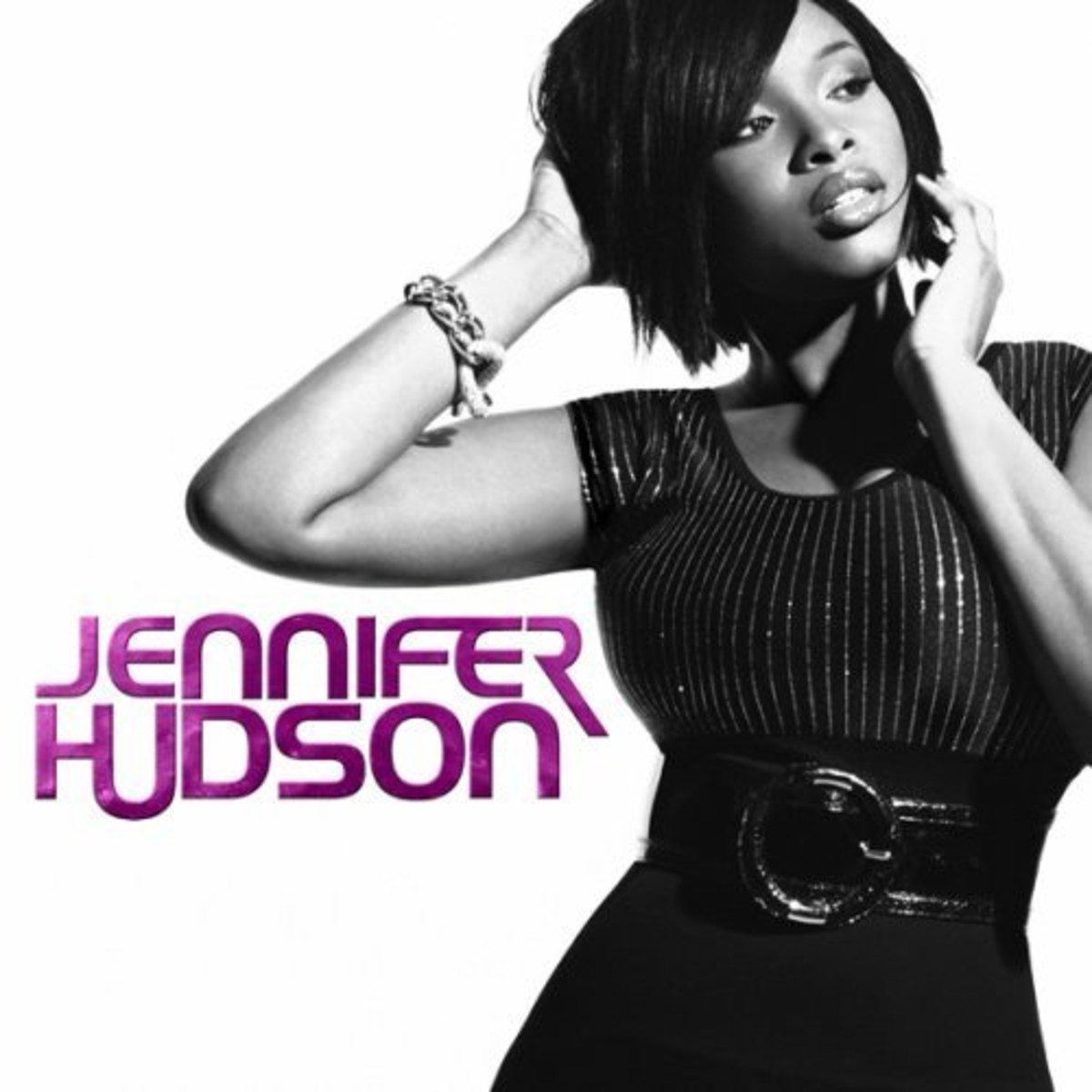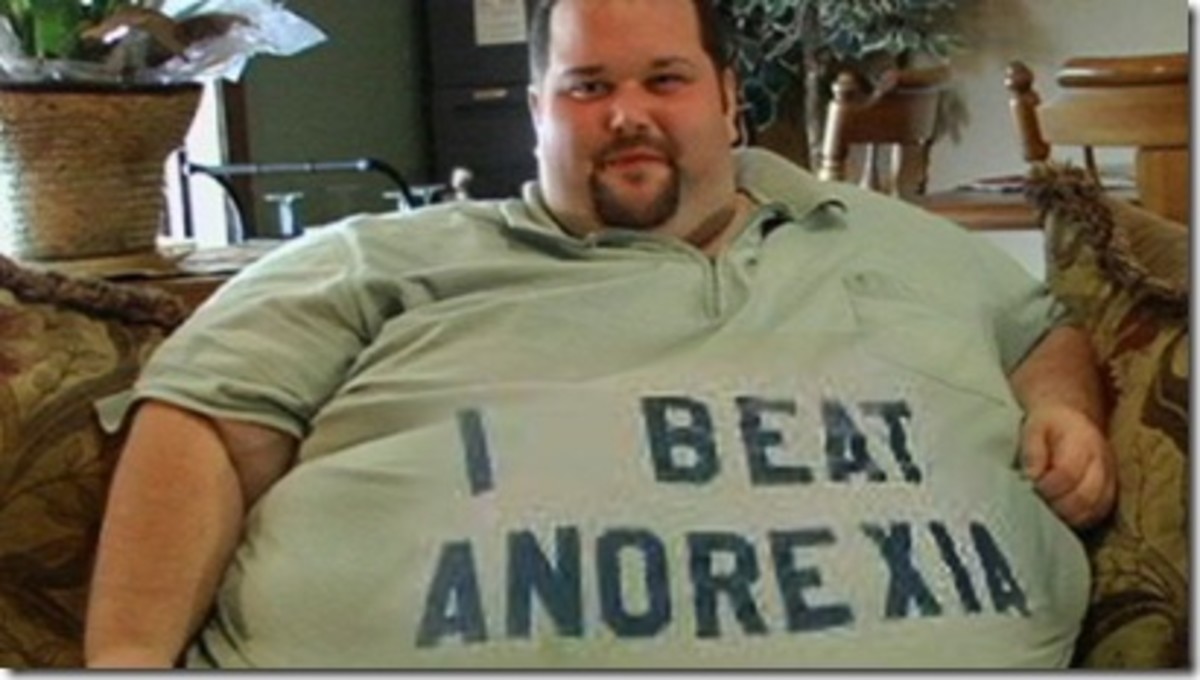How to Stop Compulsive Eating - My Story
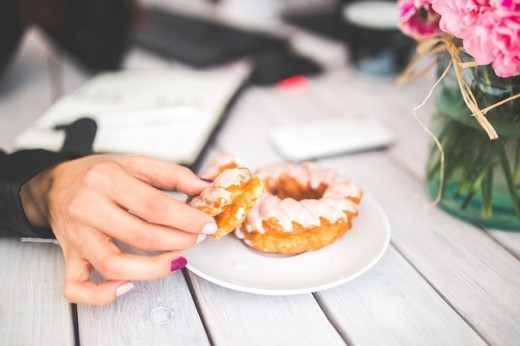
Do you turn to food when you're upset?
Trust me, I know exactly how you feel.
I've struggled with emotional and compulsive eating since I was a child. I grew up dealing with life by using food to comfort me.
And over the years as I became an adult, and grew into my 30's, I realized just how bad of a problem I really did have. I decided that I needed professional help. So I found a therapist that specialized in compulsive/binge/emotional eating disorders.
Since I'm not a therapist I can't delve into your particular situation or issues because I can't advise you. However I can tell you what I learned about myself and how I was finally able to stop compulsive eating.
My hope is that my story and what I've learned can help you. Throughout this journey, I've gained control of my emotional triggers and have learned how to cope with stress, anxiety, and depression without abusing food.
One of the books that helped me stop compulsive eating

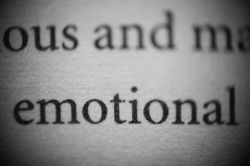
Are You Using Food for Comfort?
I certainly was.
So the biggest epiphany I had about my emotional eating struggles was that I realized I've been using food as my crutch. I've been using food to comfort myself in every single emotional situation.
What I mean by that is, anytime I'd be in some sort of dilemma or situation that was difficult - stressful, painful or overwhelming - instead of actually dealing with it I would turn immediately to food. Food became my ultimate source of comfort, happiness, soothing and pleasure.
Food was everything to me.
Food really became an obsession and it was second nature for me to immediately turn to food for everything.
It was so eye-opening when I first started therapy because my therapist told me to just do one thing at a time. All she wanted me to do was to realize what I was doing and become more self-aware. So I'd try to catch myself in the act of compulsive eating and see what was actually going on.
I needed to ask myself "what's going on in my head?", "what am I feeling?", and "what am I doing?."
I needed to know - why did I have these immediate urges to just turn to food? And I really embraced this suggestion and I found myself really trying to stop myself before I just overate. So what I learned was that pretty much when feeling any emotion you could possibly think of - whether I was happy, sad, stressed-out, anxious, in a good mood, bad mood, depressed, anxious, feeling grief, overwhelmed or bored - I didn't even think.
I would just eat.
The thoughts in my head were constantly - "I want to eat something", "what can I eat?" and "what should I eat today?" There was no cushion of time between that emotional feeling and when I would eat.
So what I've done over the last few months is train myself to catch when I feel those emotions and when I have the urge to eat. And when I catch myself I just stop.
Let me repeat that....I just stop. I stop whatever I'm doing, take a deep breath, grab some water to get food out of my hands and just control that one moment.
Do any of these emotions trigger overeating?
I overeat when I...
Stop and Control the Present Moment
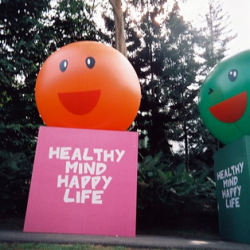
Learning the skills to stop overeating
And by doing just that I forced a cushion of time between the emotion and the eating. It sounds so simple but it is so profoundly effective. With that single skill I've been able to do a few things...
First, I ask myself what am I feeling and why am I feeling it? Do I really want this piece of food or do I want something else? And most of the time after asking myself these questions I would realize that I just feel something, like sadness. I don't really need this piece of cake because I'm not actually hungry. I'm actually sad and I want comfort.
Then, I'd ask myself, how do I help myself feel comforted? What is it that I truly need to not feel sad right now? Maybe I needed to call a friend or walk my dog or think about how I could change the bigger obstacles in my life that needed to be changed (like bad jobs or unhappy relationships for example).
What I realized next through practicing this strategy over and over again was so important to my success. I realized that I had been sacrificing my long-term health and well-being for that immediate gratification that food offered me.
What I mean by that is, I would want something to eat to sooth my sadness so I'd grab a piece of cake and that cake would make me feel better instantly. I immediately felt satisfied. But then the downward spiral and cycle of compulsive eating starts. The guilt and shame sets in and I feel sad again. So what did I do? Grab more cake.
So using food to sooth that emotion is instant gratification but it is very temporary. So the next time I feel that emotion, which could be in a few minutes, or a few hours or a few days, I would reach for more cake, and then more cake, and more cake. So in that moment I'm saying to myself (even subconsciously) that I choose the instant gratification of this food object that doesn't address whats really happening to me. And with that choice I'm actually sacrificing my long-term health.
I didn't binge on celery! I binged on cake, pizza, chips, soda and everything that caused me to gain a lot of weight. And at the age of 31 I was 150 pounds overweight with pre-diabetes, fatty liver disease and high blood pressure. I really was sacrificing my long-term health.
So I had to ask myself...what do I truly want? Do I want short term gratification? And if so am I willing to sacrifice my health for it? I came to the conclusion that I was not willing to sacrifice my health any longer for instant gratification. So what did that mean for me? And what would that mean for you if you came to that conclusion as well?
I had to make a pact with myself that I would work on this issue constantly and that involved catching myself when I had the urge to eat, finding substitutions for instant gratification and learning what I truly needed out of my life.
Also what helped me, and this may not be right for everyone, was I went on a full meal replacement program. I essentially divorced myself from food for weeks, which gave me the focus and courage to deal with my emotions and psychological issues while I learned the skills needed to tackle this once and for all.
So I implore you, if you have struggled with emotional eating/compulsive eating/binge eating/food addiction - which are all considered real medical disorders by the way - I want you to learn about them and make a pact with yourself that you will try to figure out what's going on in your head, your heart and discover what's truly going to make you happy.
Take that crutch away.
Food can no longer be a crutch if you want to be healthy. As a side note, I also learned that food does not have to be good or bad, junk or not junk. Food is just food and we can get enjoyment out of it but it has to be in moderation and for the right reasons. I'm going to write more on that topic in the future because its immensely important. But for now, I really want you to commit to yourself that you will figure out what is important to you.
Do you want to continue what you're doing and have instant gratification for your emotions by using food to comfort yourself? Or do you want to make the decision that you're going to learn new skills and help yourself to no longer seek that instant gratification?
Instead choose long-term health and well-being.
So how do you get those much needed skills to help you overcome compulsive overeating? Below you'll find some resources that have really helped me during this process. I really needed help and I couldn't have come to any of these conclusions on my own. And I'm going to assume that you may need help as well...and that's OK!
This is a big problem and its very lonely when you don't have the help you need.
My #1 Recommendation
Find a therapist that specializes in emotional/compulsive eating and/or binge eating disorder.
If you are struggling with overeating, I strongly recommend seeing a therapist. They are really the best way for you to get into the reasons WHY you overeat in the first place. Once you figure out the why, then you can work on fixing the root problem of your emotional eating disorder and move forward with recovery.
The concepts I learned in therapy have been my ultimate key to success.
I learned that...
For years I've used food to escape from my emotions. Dealing with feelings of grief, sadness, anxiety, stress and anger is really hard. Some people deal with emotional pain by distracting themselves with something else - alcohol, cigarettes, food, etc. I chose food for some reason.
I've literally worn my emotions on my body. When life got difficult (which happens a lot to most people!) I just ate and ate. Through therapy I learned skills to catch myself before I binged and ask myself what I really needed. Of course its not as easy as that, but after learning HOW to break that viscous cycle of emotional eating it becomes a habit.
An alternative option - the emotional eating program by Dr. Roger Gould
If you can't see a therapist locally or via phone, alternatively you could go through an online program. I have completed this full program and it really helps you ask yourself questions and focus on what specific things you need to work on to stop emotional eating and compulsive overeating.
Be sure to watch Dr. Gould in the video below as he explains what emotional eating is and how his program helps.
- Shrink Yourself by Dr. Gould
You can get a few free goodies here... the "Emotional Eating 101" ebook and a personalized emotional eating diagnostic report.
Dr. Roger Gould explains emotional eating and his Shrink Yourself program
Please share your story!
I know this topic can be very hard to talk about. But know that it truly does help to talk through it. So please, feel free to comment below with your experiences or your questions.

